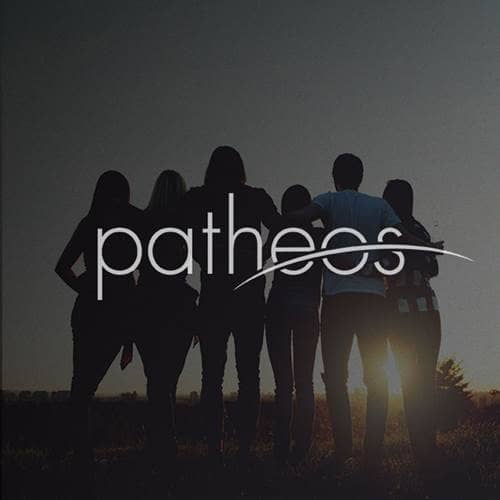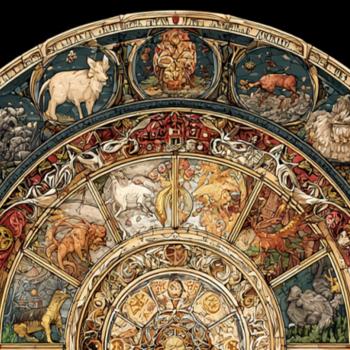
Isaiah 41:10 - Bible Verse and Perspectives
Isaiah 41:10 reads: "So do not fear, for I am with you; do not be dismayed, for I am your God. I will strengthen you and help you; I will uphold you with my righteous right hand."
Here is the historical context of this verse:
The Book of Isaiah is a prophetic book of the Hebrew Bible (or “Old Testament”). Isaiah served during a turbulent period in Israel's history, facing the growing threat of the Assyrian Empire. These chapters offer comfort and hope to the Jewish exiles. In Isaiah 41:10, God reassures His people that they not fear because He is with them and will strengthen them. Given the historical context, this was a message of comfort and reassurance during a time when the Jewish people were exiled, afraid, and needed encouragement.
Now let's examine how this verse may be viewed or paralleled in different religious traditions:
Buddhist Perspective:
While most Buddhists do not believe in a personal God, Buddhism emphasizes inner strength, resilience, and the conquering of fear. The support and strength mentioned in the verse could be viewed in terms of the guidance provided by the teachings of the Buddha (Dharma) and the support of the Sangha (community). For Tibetan (or Vajrayana) Buddhists, who traditionally believe in a whole host of Buddhas, Bodhisattvas, and savior beings, this passage could be seen as supporting the Tibetan idea that there are divine beings that can strengthen and uphold faithful practitioners of Buddhism.
Christian (including Baptist, Evangelical, and Catholic) Perspective:
Most Christians would interpret Isaiah 41:10 as a comforting promise of God's presence, help, and strength in challenging times. It is often quoted to inspire courage and trust in God, and is considered canonical in every Christian denomination.
Confucianism Perspective:
Confucianism emphasizes moral courage and righteous conduct. The idea of maintaining integrity and resolve during challenging times aligns with Confucian teachings.
Hindu Perspective:
Though not directly related to Isaiah 41:10, the Bhagavad Gita has similar themes of divine assurance in times of crisis. It narrates the dialogue between Prince Arjuna and the god Krishna, who serves as Arjuna’s charioteer and guide, providing strength and courage in the face of despair. Thus, though the figures at the center of the narrative are different, the sentiment is very similar—and Isaiah 41:10 would resonate with many practicing Hindus.
Islamic Perspective:
While Muslims typically look to the Qur’an, Hadith, and Sunnah as their sources for doctrine and practice, the Prophet Isaiah is mentioned frequently in Islamic sources outside of those three authoritative sources (e.g., Qisas Al-Anbiya and Tafsir). Additionally, the sentiment of Allah's assurance and strength in times of fear and difficulty is also a strong theme in Islam.
Jehovah's Witnesses Perspective:
As a Christian denomination, Jehovah's Witnesses view Isaiah 41:10 as an assurance of Jehovah-God's support and guidance, providing strength in the face of adversity—something Jehovah’s Witnesses are quite familiar with.
Jewish Perspective:
As this verse is from the Tanakh (the Hebrew Bible), Jewish people would understand it in the context of God's message to the Jewish exiles in Babylon. It underscores the Jewish belief in a caring, supportive God who aids His people in times of adversity; something they have trusted in for millennia.
The Church of Jesus Christ of Latter-day Saints (or LDS/Mormon) Perspective:
Latter-day Saint Christians accept the Bible as God’s inspired word and as sacred scripture. Thus, they would see Isaiah 41:10 as a testament to God's constant guidance and support in times of fear and difficulty.
Muslim Perspective:
While the Bible is not part of the Islamic canon, Muslims believe that it was inspired and given by Allah, though corrupted over time. The sentiment of Allah's assurance and strength in times of fear and difficulty is also a strong theme in Islam.
Pagan Perspective:
Pagan traditions are diverse, but many emphasize the belief that through reverencing nature and the various gods prevalent within it, one can acquire personal strength, resilience, and the supportive presence of various divine beings and/or forces.
Progressive Christian Perspective:
Some Progressive Christians may interpret this verse as a reminder of divine support in struggles for social justice, encouraging resilience in the face of adversity and trust that God’s hand will uphold the righteous causes espoused by those in the Progressive Christian movement.
Shinto Perspective:
Shinto beliefs focus more on the spirits (kami) present in the natural world than on the Shinto Pantheon. While there's no direct equivalent to Isaiah 41:10 in Shinto tradition, the sense of gaining strength and resilience in the face of challenges through the blessings and boons of the kami is a prevalent idea in Shinto belief.
As always, these are generalized perspectives, and there can be a broad range of beliefs within each religious tradition. No major world religion has complete uniformity of belief among all of its practitioners.
1/8/2024 10:49:15 PM








